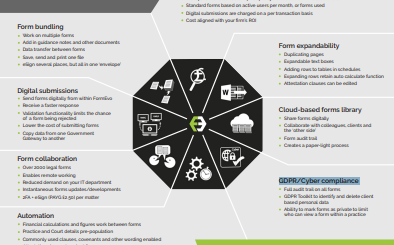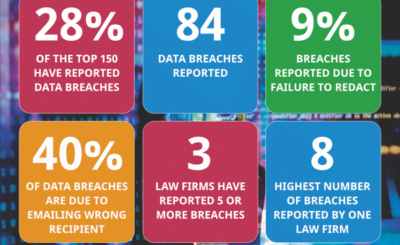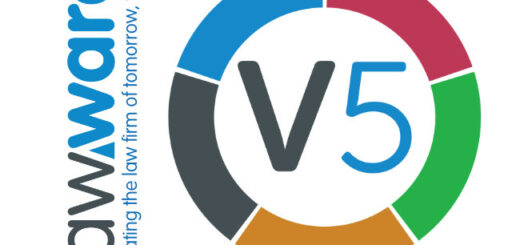Back to Basics for Lawyers: December 2011

Welcome to the December edition of Back to Basics — a Business Briefing for Lawyers.
This month the focus is on Forward Planning.
Whilst there is no substitute for knowing where you want to go, unless you put in the time and effort to plan your journey you will probably end up anywhere but the place you want to go.
This edition of Back to Basics focuses on forward planning—or planning for the future. The future will come whether you like it or not so be ready. Decide what you want, set out your plan and go for it!
It doesn’t need to be complicated—often, the best plans and ideas are the most simple ones – so remember the KISS principle. December it traditionally a month when we look back at the year just past and start to think about what the coming year will bring. It’s amazing what you can learn from a little bit of reflective practice.
If you need any help or support with your Forward Planning activities or setting your objectives—or even just exploring what your options are, please get in touch with me—I’d be delighted to help.
Brian O’Neill LL.B MBA
Business Consultant
t. 07855 838395
e. brian@drakemyre.co.uk
What do you see in 2012?
They say that hindsight has perfect vision, but there’s nothing like a bit of foresight to help you get to where you want to go—that is, if you know where it is you want to go.
I have a colleague who, at the time of writing, is three days into an Atlantic crossing on a cruise liner on his way to New York. He didn’t just wake up on Monday morning and think “I’m going to go to New York today”. His trip was a long time in the planning stage—from the selection of the date, which Cruise Line, his departure point, method of travel to the departure point, the type of cabin he would book, the number of nights in New York and selection of return flight. There were lots of variables to consider from a vast array of choices. And here we are, he made it to Southampton and is now well on his way to New York. It didn’t just “happen”.
My colleague had an objective in mind before he set out on his adventure and to help him achieve it and to enjoy the experience, a lot of time went into the planning. He’s an experienced traveller and particularly enjoys cruises—but on each and every occasion, he plans his trip meticulously. When you go on holiday how well do you plan your trip? It may surprise you to know that many business people spend more time planning their holiday than they do planning the future of their business —and that’s a shocking truth!
Be honest with yourself as you look back on 2011. Did you start this year with a plan? Did you sit down in December 2010 and say “2011 is going to be the year when…….” complete the sentence with whatever objectives you had at the beginning of the year—if you had any, that is.
There can be no substitute for forward planning. To do that effectively, you really do need to know where you are going. We are in December 2011 and, for many, it has been another tough year. Many businesses are struggling through low or no growth whilst others are going backwards with profits down (or losses up!) on last year. You might be interested to know that there are some businesses that are thriving in the current market.
They have not been idle in the downturn and have been continuously planning to meet their objectives. You see, once you know what it is you want, it is far more straight forward to start to lay out the things you need to do to achieve what you want.
It’s December—where do you want to be this time next year? Why don’t you spend some time reviewing what it is you want and then set about planning to achieve it?
Keep it simple
KISS—keep it simple…..stupid!
Yes, that well worn saying that, if anything, has been overused. But then again, it does have tremendous value. Whether you’re the experienced Partner running the business or the new Trainee just in the door, there are some very basic steps that you should take . There are lots of ways to do forward planning — but I’m a big fan of keeping it as simple as possible.
Start off by being absolutely clear where you are starting from. What is the reality of your current situation? Are you happy with it? Are you moving towards your objectives (do you have any objectives to move towards)? How are you measuring your progress? These are just some of the initial questions you MUST ask yourself. You MUST do this before getting into any detail or serious planning—otherwise you’ll just end up going round in circles.
Once you are clear on your current situation and your objectives you’re then in a position to start to plan. You will know the “gap” between where you are and where you want to be—so now you MUST set out the things you need to do to bridge that gap.
You must also be aware of the strengths and weaknesses of your practice and focus on capitalising on the strengths. Be aware, also, of the threats that you face and how to counter them as well as the opportunities that present themselves—and how to take advantage of them.
You need to consider the financial resources you will need, the new skills you might have to acquire, the business development work you will need to do to grow your business and the tactics you will employ to achieve your aims. All of these elements form your plan—when you will need them and how you will apply them. Write it all down and, most important of all, take action on it.
When my colleague left on his Atlantic cruise, the Ship’s Captain had a very clear objective in mind—to sail the ship to New York. That is his objective. He set out on Monday with his destination in mind and will chart his course in accordance with his plan. His destination is not in doubt – is yours…..?
Boost your Productivity using Word Templates
The Styles Bank provides document management services as well as “packaged” document sets for your use.
Contact us at info@thestylesbank.co.uk or on 07855 838395 for a brochure or more information.
Simon says…..
The story of the Christmas tree – December 2011
This month’s topic is as tall and wide as you want to make it and in some ways that’s the problem with future planning, where do you start and where do you finish?
My partner and I went to buy a Christmas tree on Sunday. We went to our usual place, a small local company whose business it is to grow Christmas trees, that’s all they produce – they don’t make anything else. She remarked that their business plan must sound a bit odd because they only have a sales period of about 1 month in a financial year; I agreed that on the face of it was pretty limited. However I noticed some distinct changes this year with their sales proposition. Instead of just selling trees this year – they had a little Christmas shop in the barn, it wasn’t a big selection but we did stop and peruse; we bought a candle. He is also selling Christmas wreaths; we bought one. After selecting our tree, it was wrapped and taken out to our car by the assistant (nice touch). There was a burger van in the car park.
So what has happened here? And why is this a good example of planning for the future? Because earlier this year they planned to increase Turnover and are executing their plan.
There are 2 basic ways to increase Turnover. Attract more customers, or, increase the average amount your customers spend with you. (Or, both). They have planned to increase the average spend per customer. This has meant organising their premises, identifying and buying stock. Hiring or buying electronic point of sale tills (they now need to handle payment cards, whereas previously they were cash based). And, recognising that customers will spend longer with them – providing hot snacks and drinks (it’s a barn; it’s not heated). The stock has cost money, which is a risk, but has been mitigated by the wreaths (which they make from the bits of tree that get trimmed before sale, plus trimmings). I imagine the burger van pays a pitch fee.
My point is this. It is possible for any business to grow in this economy. It requires thought, it requires a knowledge of your customer, it requires the ability to put yourself in the customer’s shoes and imagine a better buying opportunity.
So what actually happened when we went to buy our Christmas tree? In this case my partner bought a candle on an impulse buy (ladies like candles – its romantic). I brought the wreath, I know (I guess they do too) they are on sale in garden centres for between £40 – £60, I also knew we ‘needed’ one. These were £15. (guys like a bargain – if it’s ok with the ladies, it was! – close the deal Simon). And the tree is really good too! (You get to see them standing (unwrapped), select the one you want and then they wrap it for transporting home).
So my Christmas message is this – understand why your customer is your customer, understand the dynamics involved, then think about how to maximise your opportunity, think about what you need to put in place to achieve this, cost it out – know where you’re break-even point is, mitigate as many of the risks as possible, and then do it.
Merry Christmas and a Happy New Year to you.
Simon Greig is Sales Manager of LawWare Limited, Edinburgh. Contact Simon at simon@lawware.co.uk
A little bit of reflective practice is a good thing
After what is always a hectic run up to the bit day, the festive break is a time to relax and enjoy the occasion of Christmas. If you have young children it can be a magical time as they get off to bed early dreaming about what Santa will bring them. If you are taking some time off, whilst it’s always great to get away from work, why not take just a little bit of time out over the holiday to do a little bit of reflection on the events of the year.
What are the things that have gone well for you? Think about how these came about and how you felt when they came to pass. What decisions did you make that helped bring about these good events and who was involved in making them happen. Most importantly, what can you do to make events go your way in the coming year.
On the other hand, what things didn’t go your way this year? There’s always something that didn’t turn out the way you thought it would. Reflect on the events that led up to it and why it happened. Did you see it coming? Were there things you could have done that might have prevented it happening? Most importantly, whether good or not so good things happened, think about what you’ve learned from them. Did the way things turned out teach you anything about yourself? What about the way you handled the situation?
There’s nothing you can do about these events now—they’re in the past—but just maybe, the lessons you’ve learned as a result of these experiences will stand you in god stead as you plan for your future.
Finally, it’s the season to be jolly. Give yourself a pat on the back for making it through a difficult 2011. Relax and enjoy the festive period and have a very Marry Christmas and a Happy and Prosperous New Year. See you in 2012!
Brian O’Neill LL.B MBA
Business Consultant
t. 07855 838395
e. brian@drakemyre.co.uk








1 Response
[…] the December issue of Back to Basics we looked at Forward Planning and made some recommendations of what to do and where to start. […]